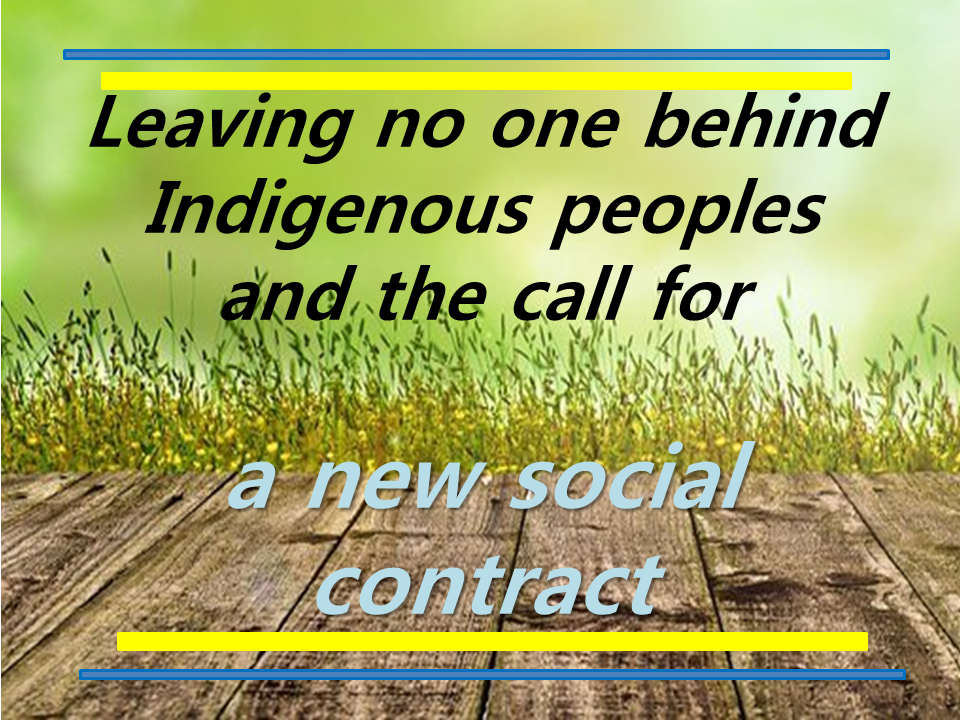There are over 476 million
indigenous peoples living in 90 countries across the world, accounting for 6.2
per cent of the global population.
Indigenous peoples are
the holders of a vast diversity of unique cultures, traditions, languages and
knowledge systems. They have a special relationship with their lands and hold
diverse concepts of development based on their own worldviews and priorities.
Although numerous indigenous peoples worldwide are
self-governing and some have been successful in establishing autonomy in
varying forms, many indigenous peoples still come under the ultimate authority
of central governments who exercise control over their lands, territories and
resources. Despite that
reality, indigenous peoples have demonstrated extraordinary examples of good
governance, ranging from the Haudenosaunee to the existing Sámi parliaments in
Finland, Sweden, and Norway.
The COVID-19 pandemic has
exposed and exacerbated many existing inequalities, disproportionately
affecting populations all over the world that were already suffering from
poverty, illness, discrimination, institutional instability or financial
insecurity. From the perspective of indigenous peoples, the contrast is even
starker.
In many of our societies, the social contract, at the very
least, needs some revision.
Sourcing by
:
www.un.org






This is a very good post - thank you.
ReplyDeleteEveryone wants to be respected. Conversely, being ignored or insulted by another individual creates a sense of hostility and revenge, which often leads to violence. It can often be seen in the news in examples of cases of assault and murder that start with minor profanity. Such situations also occur within groups, peoples and countries. Therefore, respect is necessary to prevent unnecessary violence and to create a peaceful society. Respect is expressed by love and regard for others, and this is a culture of peace that is essential for humanity.